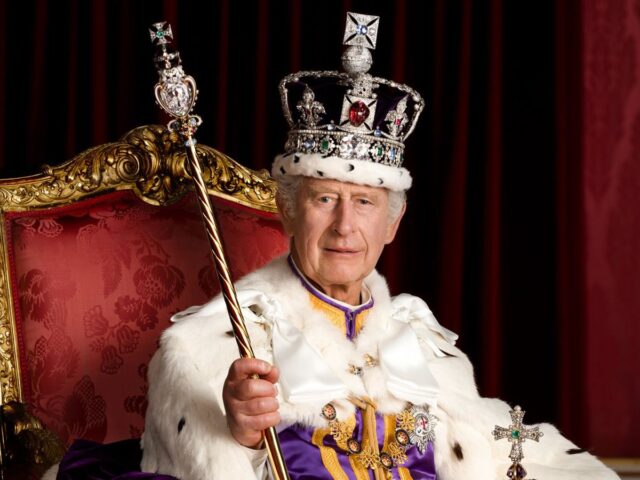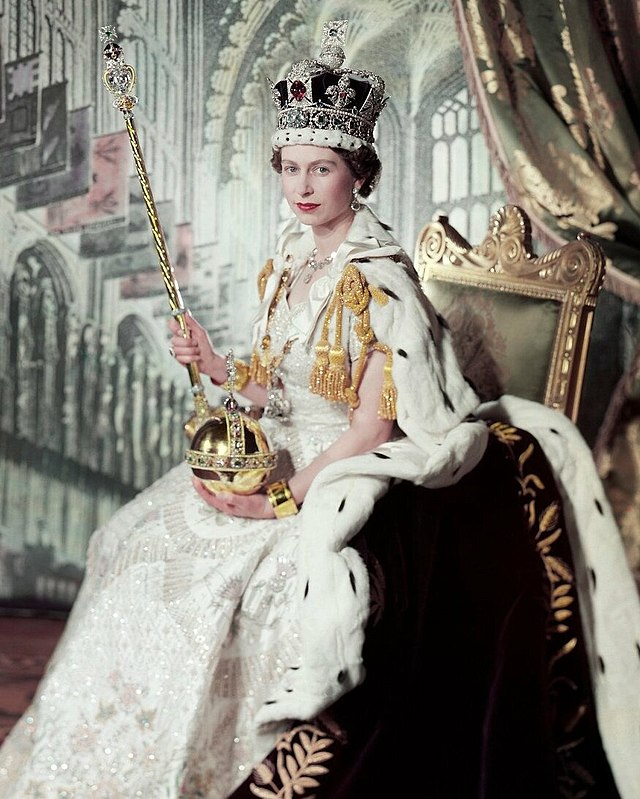Charles’ Coronation: A Hard Rain in Retrospect?

“Oh, where have you been, my blue-eyed son?
And where have you been, my darling young one?
I’ve stumbled on the side of twelve misty mountains
I’ve walked and I’ve crawled on six crooked highways
I’ve stepped in the middle of seven sad forests
I’ve been out in front of a dozen dead oceans
I’ve been ten thousand miles in the mouth of a graveyard”
-
Bob Dylan, “A Hard Rain’s Gonna Fall”
SB VEDA <CALCUTTA>
Whilst blue-eyed Charles III became King of England, Scotland, Wales and Northern Ireland (and oddly, Canada) a downpour outside failed to deter the procession of his subjects who had come – well exactly why may well have been a mystery to them.
One wonders if the pathetic fallacy was one in which the spirit of the departed queen called out to her blue-eyed boy in warning of a future she had seen on her deathbed.
The hard rain that fell, not Dylan’s nuclear rain, but one which augured some feeling of finality among many epitomized the ambivalence of the crowd. Most were drawn out of a sense of loyalty, fealty, and nostalgia at a time when Britons are struggling with the notion of what it means to be British.
Now, a multicultural, multi-religious, culturally diverse nation, home to immigrants from all over the world – indeed the prime ministers of the UK and Scotland draw their roots from former colonies, india and Pakistan, respectively – perhaps the new King, outspoken on issues such as architecture and the need to eat fish, could serve as a common point of confluence for Britain’s diverse peoples.
On the other hand, it could just be confusion.
“I’m here says Rose May,” a retired schoolteacher from Bristol. She was too young to remember Queen Elizabeth’s coronation but old enough now to be present at her successor’s. “I may not see another coronation. There’s my age and it’s not inconceivable that Charles would be our last King. I mean, with all the suffering that’s been going on in this country after Brexit and with inflation, how long can we continue to afford the monarchy? Can we afford it even now?”
Queen Elizabeth II’s coronation took place with far less ambivalence as a young woman took the responsibilities of being head of state after a world war had torn apart Europe was seen as a sign of hope.
It is a question that echoes in the thunder and reverberates in the downpour that follows. How long will the UK afford the monarchy?
Monarchists would differ: “In these challenging times,” says Paul Hammersmith, “it’s the monarchy which offers us inspiration and stability. It’s something we can hold on to as everything else goes to sh…t.”
Indeed, for many, the monarchy is the only defining feature of their ‘Britishness’ which is tangible and concrete.
They certainly can’t relate to their Indian-born Prime Minister or Scotland’s Pakistani rooted leader, the latter a proponent of Scottish independence with the former rather ambivalent about the break-up of the Kingdom – perhaps the clearest sign of any of the empire home to roost.
Despite the lauding of monarchists, Charles is viewed as a pygmy compared to his forbears, rulers like Henry VIII and Elizabeth I. As Guardian reporter gauges support for the new King, one says she likes his support of the environment. Another says he is aimless and “talks to flowers.” More damning is the man who says that Charles has never made a decision in his life.
With the annual cost of the monarchy estimated at £345 million or USD$ 431 million, should Charles’ reign even last a decade the present value of funding this is 263 Trillion pounds sterling (that’s right trillion) at today’s interest rates.
Bearing that in mind, one begs the question of whether the monarchy is work it. Certainly, tourism does not account for this sum, and an increasing awareness of the monarchy’s chequered past makes this all the more difficult to justify.
One solution could be to have a monarch that is wholly supported by the public purse in terms of palaces, residences, travel, etc. but at the same time draws an annual salary of only one pound sterling. This would send a message to the British people that the monarchy could represent the finest in what people consider to be British while setting an example to the people that Monarchs aren’t simply giant welfare recipients. Especially as King Charles and other royals have private sources of wealth form their estates that amount to tens of millions of pounds every year, taking a salary of 1 pound would not impact them all that severely while countering the optics that the monarchy is a drain on the public purse.
ELECTED HEAD OF STATE
While British traditions have seen the monarchy pass by right of blood succession only, other Royal families elect the head of state from their own ranks in a kind of blue blood election. This would at least throw in arguments as to qualifications, experience, and whether the people might have something to say about choosing a monarch.
An extension of this would be to elect the monarch from the commonwealth of nations. While that is a radical idea, it would be a humbling way in which the UK could atone for centuries of subjugation in its empire.

Election of Sheikh Muhammed bin Zayed as leader of all Emirs or kings of the United Arab Emirates (UAE)
The upshot is that, if the monarchy is to survive as an institution, it must evolve to represent the needs of ordinary people, else that Dylan’s hard rain will fall and the thunder will roar without warning.
 The Global Calcuttan Magazine
The Global Calcuttan Magazine 